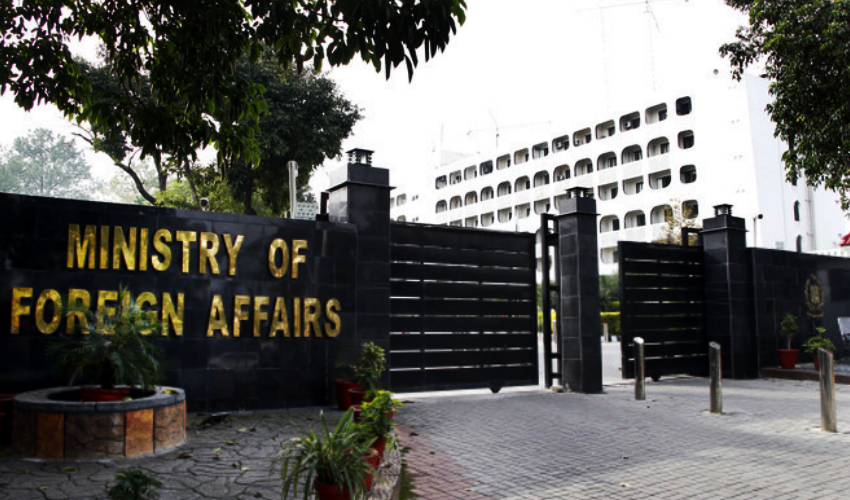The Ministry of Foreign Affairs (MoFA) expressed strong dissatisfaction on Monday with the United States (US) State Department's decision to categorize Pakistan as a "country of particular concern" in its annual religious freedom watchlist.
The Pakistani government dismissed the listing, stating that it was based on a "biased and arbitrary assessment" that was not reflective of the actual situation on the ground.
Last week, the US State Department identified several nations, including Pakistan, Russia, Saudi Arabia, and China, as "countries of particular concern for having engaged in or tolerated particularly severe violations of religious freedom."
The designation raised concerns in Pakistan, leading to an official response from the foreign ministry.
In a statement, the Pakistani foreign ministry asserted that Pakistan is a pluralistic country with a rich tradition of interfaith harmony.
It emphasized the measures undertaken by Pakistan to promote religious freedom and protect the rights of minority communities within its borders.
The US State Department's list also included Algeria, Azerbaijan, the Central African Republic, Comoros, and Vietnam as special watch list countries for "engaging in or tolerating severe violations of religious freedom."
Additionally, specific entities such as al-Shabab, Boko Haram, Hayat Tahrir al-Sham, the Houthis, ISIS-Sahel, ISIS-West Africa, al-Qaeda affiliate Jamaat Nasr al-Islam wal-Muslimin, and the Taliban were designated as entities of particular concern.
Notably, India was not included in the list, despite recommendations by the US Commission on International Religious Freedom (USCIRF) and concerns raised by international human rights groups about India's treatment of religious minorities.
The exclusion of India from the list drew sharp criticism from Pakistan, with the foreign ministry expressing deep concern over what it viewed as the omission of a major violator of religious freedom.
The statement issued by the Pakistani foreign ministry concluded by emphasizing the counterproductive nature of such designations, describing them as "discriminatory, unilateral, and subjective exercises" that undermine the shared objective of advancing religious freedom globally.



























